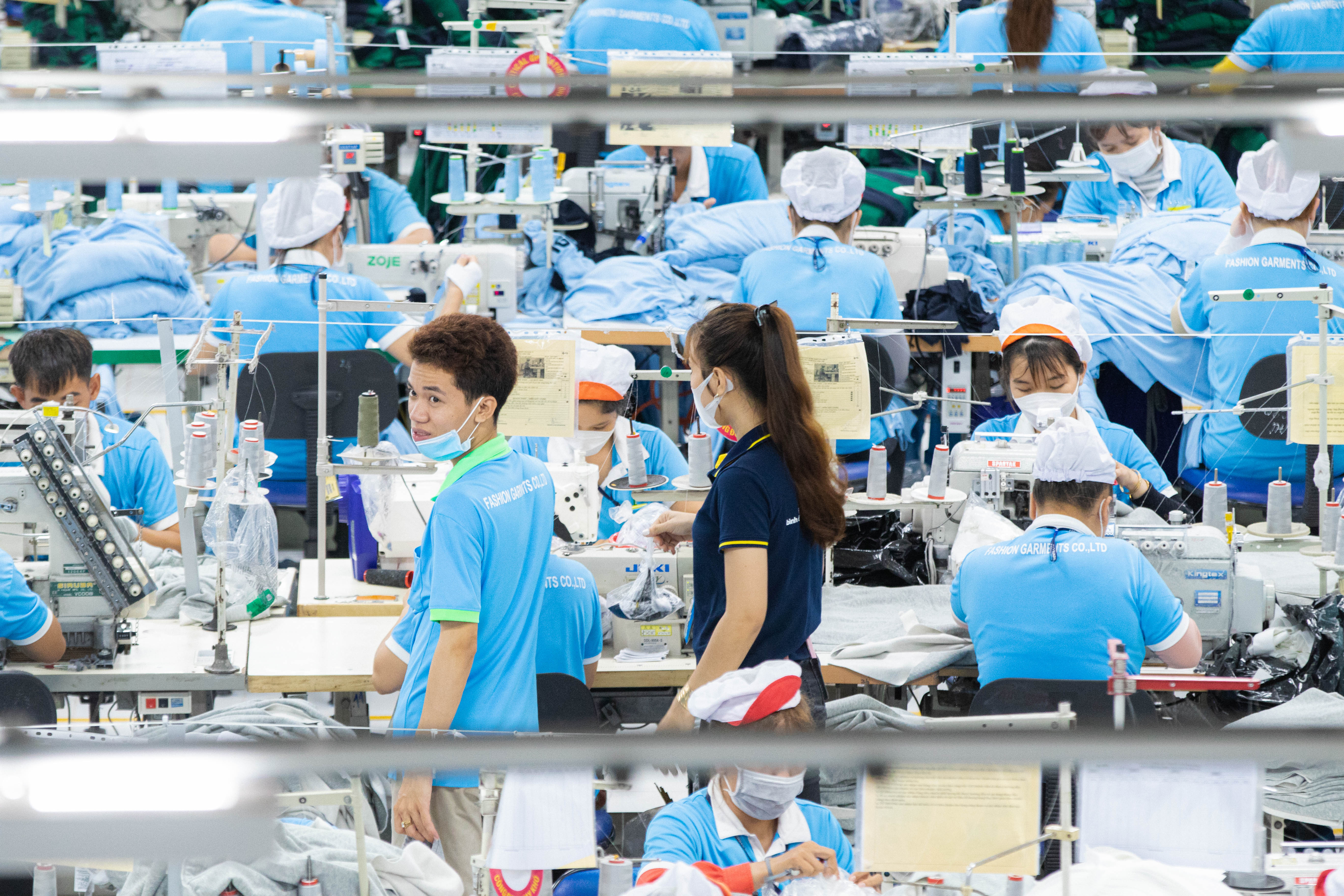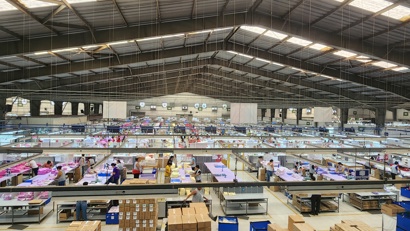
In Vietnam, formally employed workers must be paid into a bank account, and the majority of large and medium enterprises in Vietnam’s garment sector have digitized their wages. However, many workers, especially women, are not benefiting from their payroll accounts. They withdraw 100 percent of their wages on payday due to lack of knowledge and confidence to use financial services, and the majority of their expenses, such as rent, food, and school fees, are paid for in cash.
“[On payday] I usually went to [the] ATM and withdrew all of my salary in cash because I was unaware and nobody guided me.”
—Thuy Linh, female peer educator
HERproject launched HERfinance in Vietnam with the aim to expand financial inclusion, improve financial health, and increase women’s economic empowerment in garment supply chains. Initial analysis of worker and manager interviews at four participating factories found there was an impact for both women and business.
Female and Male Workers Increased Their Usage of Financial Services
Even though the workers had been paid into bank accounts for some time, very few were benefiting from them. Following participation in HERfinance, however, 1 in 3 women and men started using a range of financial products and services, including sending remittances, paying bills online, and opening savings accounts. The increased usage of financial products and services means that workers gained newer, safer, and more convenient financial behaviors. For example, they can confidently and instantly send money to a family member at their time of need.
When I was speaking with workers in Vietnam, they told me how important it was to be able to send money to their families. Before learning how to use their phones to send money, it would take nearly two hours to send money home, and they would need to take time off from the factory since banks are only open on weekdays during working hours. This caused a lot of anxiety when needing to choose between work and assisting a family member.
“[Now] I know how to use my e-wallet to transfer money, pay electricity, and water bills, that helped me save a lot of time.”
—Linh, female peer educator
Female and Male Workers Increased Their Financial Resilience
Most workers recognize savings is important for financial security, but lacking the funds to save and a consumerist mindset to spend were identified by Women’s World Banking and ILO as the primary reasons for not saving. In addition, the World Bank’s Global Findex found that 1 in 2 Vietnamese adults had borrowed money. HERproject surveys conducted at the start of the COVID-19 pandemic found an increase in workers taking out loans for basic provisions, with loans increasing by 4 percentage points among female workers and by 17 percentage points among male workers.
“I have two school-age children. Since we have no savings, when my income was reduced, I had to borrow some money from my friends to cover the living costs and pay for my children’s school fees. I hope our life can get back to normal soon.”
—Male garment worker, Vietnam
However, following participation in HERfinance, 1 in 3 women started saving every month, and 1 in 3 women opened a savings account. HERproject observed that the impact of training on saving practices is enhanced when male and female workers have access to savings accounts, as they are encouraged to save by knowing that their money is safer.
“I used to [buy gold for saving]. But now, I think I will have more interest if my money is in a savings account. The gold price is not stable, we cannot anticipate everything. Also, if we keep the gold at home, it is not safe.”
—Ngan, female garment worker
The COVID-19 pandemic has emphasized the importance of savings. In fact, many workers told me that setting money aside for emergencies is now their one of their most important savings goals and that they are involving their family members when formulating household budgets. Following HERfinance training, 79 percent of women and 78 percent of men reported confidence in handling financial emergencies, up from 53 percent and 62 percent.
“I started to plan out my expenses. My family now have a savings account for emergencies, and we put money into it every month. My wife and I often have discussions before making larger purchases.”
—Male garment worker
Broader Business Benefits From Investing in Financial Capability Training for Workers
Expanding workers’ financial inclusion also had a positive impact for factory management. Now that workers were able to conduct time-saving financial transactions digitally, they did not have to take time off to pay bills or send emergency remittances. One of the managers I met in Vietnam told me that this led to greater productivity and reduced turnover in female and male workers:
“After completing the HERfinance training, workers have greater knowledge of social protections available to them from the workplace and government. From this, workers are less likely to change workplaces for minor wage increases. As a result, our factory could reduce turnover rates and the cost to enroll and train new workers. Moreover, the factory can retain the experienced and high-skilled workers who are more productive and able to produce a wider range of products. Implementing workplace training programs like HERfinance can also help strengthen the relationship and reputation of brands and factories.”
—Ms Hong Ha, management of evaluation department, Song Hong 2
These findings show the importance of financial capability training as part of wage digitization and can lead to benefits for both women and business. As momentum builds for digitizing payments, stakeholders should not stop at simply providing low-income workers access to digital payroll accounts—they should also include financial capability training and support to enable male and female workers to use a range of relevant financial services and to improve their financial health.
- Financial Health
- Vietnam


